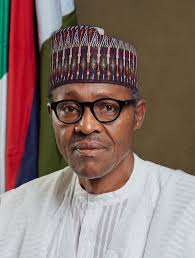The Enigma of Baba Buhari
Muhammadu Buhari embodied Nigeria’s complex journey through military rule and democratic struggle. His life unfolded like a political thriller – from dusty Daura childhood to presidential palace, ending with hushed death in a London clinic at 82 on July 13, 2025. This soldier-turned-democrat left Nigeria grappling with contradictions: praised for integrity yet criticized for economic turmoil, hailed for infrastructure but haunted by insecurity. His eight-decade journey reflects the nation’s own turbulent adolescence, leaving citizens divided over whether he was Nigeria’s savior or its burden.
From Daura to the Battlefield
December 17, 1942, in Daura, Katsina State, marked Buhari’s entry into a Fulani chieftain family. His father’s death when Buhari was four introduced early hardship, raising cattle under scorching sun. At Katsina Provincial Secondary School, classmates recalled his quiet intensity. Though dreaming of medicine, military life claimed him after cousin Mamman Daura’s intervention. His 1962 training at UK’s Mons Officer Cadet School forged a leadership style blending Qur’anic discipline with British military precision. Commissioned as second lieutenant at 20, his defining moment arrived during the Nigeria-Biafra War. Commanding battalions in strategic sectors like Awka and Nsukka, he witnessed firsthand the fragility of Nigeria’s unity, a lesson that shaped his future governance.
Military Career: Coups, Civil War, and Command
Buhari’s military ascent saw him governing Borno State in 1975, delivering roads and hospitals that previewed his infrastructure focus. As Federal Commissioner for Petroleum, he spearheaded NNPC’s creation and national pipeline networks, confronting oil corruption that later defined his presidency. On December 31, 1983, tanks rolled into Lagos as Buhari seized power amid economic chaos. His military regime imposed austerity, launched the War Against Indiscipline, and jailed politicians. Markets saw dawn queues for rice. Critics disappeared. Newspapers silenced themselves. After 20 months, General Babangida’s 1985 coup ousted him. Three years in detention followed, where he maintained: “I served Nigeria. No regrets.” This period cemented his image as an unbending disciplinarian.
Presidency: Promises, Trials, and Contradictions
The Unthinkable Victory
March 31, 2015, stunned Nigeria. Buhari achieved what no opposition candidate had accomplished – unseating incumbent President Goodluck Jonathan. His anti-corruption platform resonated with citizens weary of graft. The Change slogan swept him to power with 15.4 million votes. Supporters danced in streets nationwide, believing Nigeria’s redemption had arrived.
The Bitter Pill of Governance
Reality soon tempered euphoria. Security challenges persisted despite reclaiming territory from Boko Haram. Bandits abducted over 3,000 students during his tenure. Farmers abandoned ancestral lands. Economically, landmark infrastructure emerged: Lagos-Ibadan rail, Second Niger Bridge. But this came at catastrophic cost – $90+ billion borrowed, pushing debt-to-revenue ratio to 96%. Inflation rocketed to 22.5%, unemployment tripled, and multidimensional poverty engulfed 133 million Nigerians. His anti-corruption drive proved equally paradoxical. While exposing oil sector rot, he appointed allies facing embezzlement allegations. This duality became Buhari’s signature.
The Jubril Saga
Health crises plagued his presidency. Disappearing to London for months in 2017 sparked bizarre rumors of a Sudanese body double named Jubril. Buhari addressed the nation visibly irritated: “It’s the real me!” Even illness became political theater. His stoicism in facing mortality rumors revealed both vulnerability and trademark stubbornness.
Final Years and Death: The London Vigil
June 2025 found Buhari back in London’s Clinic, frail and battling undisclosed complications. Nigerians monitored sparse medical bulletins. On July 10 came hopeful news: discharged from ICU. Three days later at 4:30 PM, spokesperson Garba Shehu’s tweet ended speculation: “President Buhari is no more. Pray for Aljannatul Firdaus.” No crowds gathered. No final speech echoed. The soldier who despised pomp died quietly far from Daura’s soil. Incumbent President Tinubu declared seven days of national mourning. Flags lowered to half-mast across government buildings. Buhari’s austere nature persisted even in death.
Hero, Failure, or Paradox?
Buhari’s legacy fractures Nigeria. Lagos market traders curse inflation that devoured savings. Borno farmers praise land reclaimed from terrorists. Activists note jailed critics alongside new railways. Infrastructure development stands as concrete achievement – rails and bridges transforming transportation. Peaceful power transfer in 2023 demonstrated democratic commitment. Oil sector transparency increased under his watch. Yet economic management proved disastrous. Catastrophic borrowing burdened future generations. Insecurity persisted despite military gains. Democratic institutions weakened through actions like forced resignation of Chief Justice Onnoghen. He governed as Nigeria’s stern father – respected for integrity, resented for rigidity, leaving citizens arguing whether he broke Nigeria or tried saving it.
The Unfinished Symphony
Buhari’s life composed a symphony of contradictions. The cattle herder’s son who commanded armies. The dictator who embraced democracy. The anti-corruption crusader surrounded by graft scandals. His leadership reflected Nigeria’s own struggle – immense potential shackled by systemic failures. As his body returns to Daura’s earth, Nigeria inherits his complex legacy: gleaming infrastructure alongside crushing debt, reduced terrorism with persistent kidnappings, democratic transitions shadowed by autocratic tendencies. His self-assessment – “I have done my best” – echoes with exhaustion rather than arrogance. History’s verdict remains unwritten, but his eight decades etched Nigeria’s story in permanent ink. Buhari’s true legacy lies not in solved problems but in the nation’s ongoing struggle to reconcile the ideals he championed with the realities he created.


